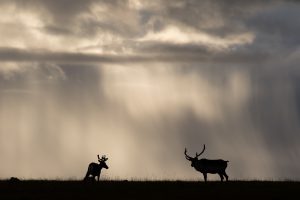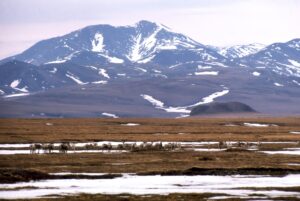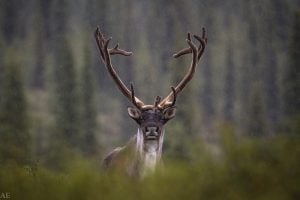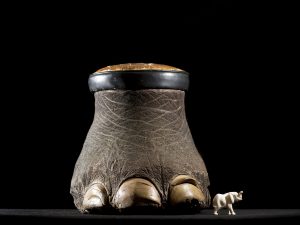An isolated herd of woodland caribou in Quebec is scheduled to move into a new home — one that would be a considerable downsize.
The Quebec Minister of Forests, Wildlife and Parks, Luc Blanchette, recently decided to move the Val D’Or caribou herd in western Quebec, which numbers about 15 individuals, to the Saint-Félicien zoo, located in the centre of the province.
The decision, which has conservation biologists fuming, came in late April with the intention of saving the caribou. “The number of individuals was too small for the herd to maintain itself, and its habitat was too disturbed to do so,” said Jacques Nadeau, communications manager for the Quebec minister, in an email. “Moving the individuals of this population ensures the survival of the herd.”
Martin-Hugues St-Laurent, a caribou specialist and professor at la Université du Québec à Rimouski, has openly dissented to the decision, and questions the science behind it. “It’s kind of crazy that they decided something that’s not necessarily based on science,” he said.
St-Laurent wants to see an analysis conducted in which different conservation strategies for the herd are modeled to see what will work, and what will not. “I have the only lab that can do that,” he said, adding that the Quebec government has yet to come to him. “For the Val D’Or herd, we really need that kind of analysis done.”
At the very least, biologists like St-Laurent want to see the report that was provided to the minister, which would clarify why the decision was made to relocate the caribou. It has so far not been publicly released.
The herd is scheduled to move next year to a 300-hectare nature trail park within the Saint-Félicien zoo.
“Here, they will be protected against predators, will have health care and they will be able to live longer,” said Christine Gagnon, director of conservation and education with the Saint-Félicien zoo.
In spite of the zoo’s assurances that the herd will be well cared for, St-Laurent is concerned the decision will set a precedent for the three remaining isolated caribou herds in Quebec, which are also facing pressure from habitat loss and other anthropogenic threats. “This will be the first time it’s done,” he said, “so why not do it again, and not just for caribou but for other animals?”
Despite their current disagreement, St-Laurent says he’s willing to work with the government and would open up his lab to find a solution that best fits the Val D’Or herd — even if that means sending them to the zoo.
“If they can show that all the other strategies will not give the success we need, then at least we know,” he said.




